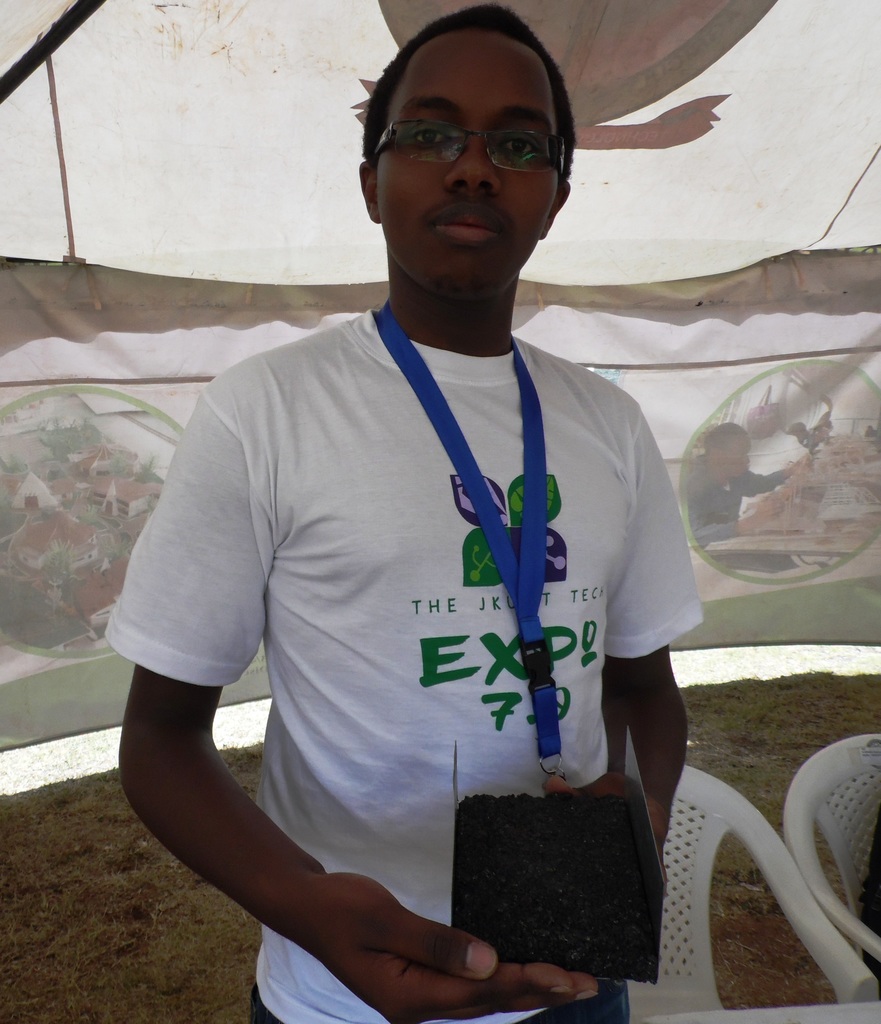JKUAT student Martin Gechimo poses in front of the movable Capillary Wick System farm during the institution’s Seventh Tech Expo on November 4, 2016. Other students marvel at the farm, which can host 100 crops. PHOTO BY LABAN ROBERT.
University students have created a movable farm for urban dwellers who can cut kitchen cots by growing at least 100 crops in suspended containers.
Apart from recycling the plastic containers, which are a menace to the environment, but also reducing on kitchen expenses as the cost of living keeps rising.
The areal farm also called the Capillary Wick System only requires an open place with direct sunlight.
Martin Gechimo, one of the four Jomo Kenyatta University of Agriculture and Technology students who came up with the innovation, said the structure fits urban dwellers who may not have permanent residences, but wan to want to cultivate.
READ ALSO:Agripreneur turns waste plastic bottles into aerial vegetable farm
The garden system has two kilogramme containers filled with sterilised soil mixed with farm yard manure.
The soil is sterilised to get rid of disease like bacteria wilt, which does not spare crops like tomatoes, black nightshade, pepper, capsicum, cucumber, among others.
Because the containers do not touch the ground, recontamination of the sterile soil is limited.
READ ALSO:‘Queen of urban farming' earns from Nairobi’s plastic eyesore
“Each of the containers can have different vegetables for instance tomatoes, kales, cabbage, pepper, capsicum, onions, black night shade, cucumber, among others.”
“These may look small but their sum per week for family of four people can surpass Sh500. After installation, the maintenance costs are negligible,” Gechimo said.
After two to three months, a farmer can harvest vegetables, onions and tomatoes and prepare a meal!
READ ALSO: Parachute farming saves urbanites over Sh1,000 vegetables expenses
The garden has a water tank for irrigation through the interconnected pipes. But the crops high on the upper rails have bigger containers from the outside which carry water. The inner container with the crop is perforated to allow for roots to draw in water.
According to the test the group has done, one litre can run each of the crops in the capillary garden for two week.
Crops like cucumbers and tomatoes, which require staking, are placed on the lower table and supporting threads are tired to the metallic rails up.
Gechimo can be contacted on +254718408276 or +254718155542.
Write comment (0 Comments)

















